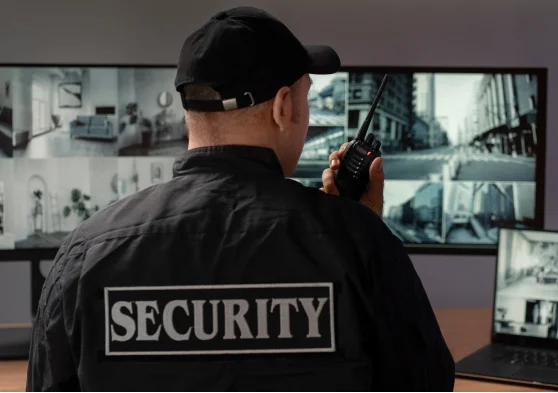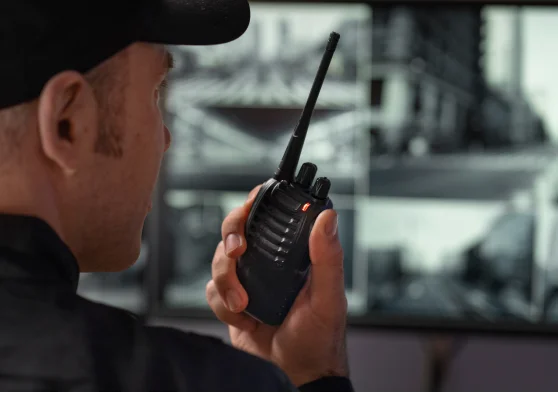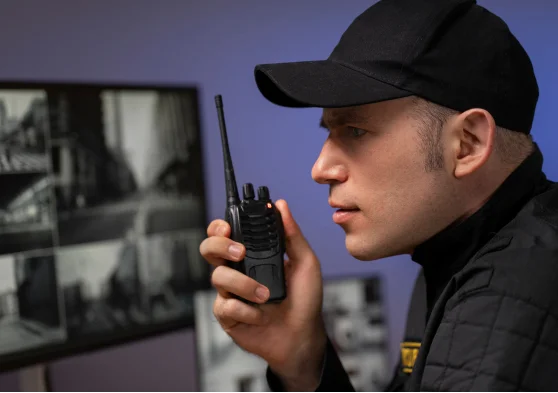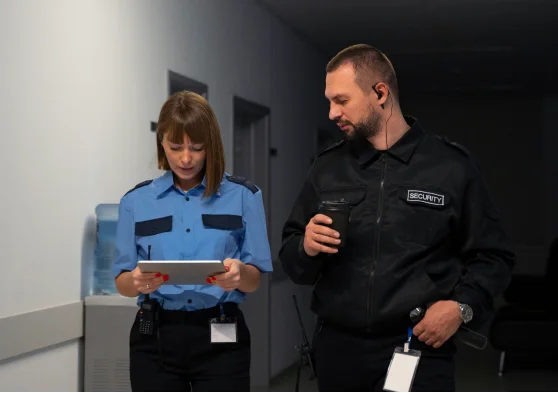Shopping Center, Mall, Restaurant & Retail Store Security
In New York—one of the world’s busiest commercial hubs—retail and hospitality establishments face constant security challenges. From bustling shopping malls and high-end boutiques to corner restaurants and national retail chains, each type of venue must manage theft, vandalism, crowd control, and emergency preparedness, all while maintaining a welcoming customer experience. Effective security protects customers, employees, inventory, and brand reputation—and in high-traffic locations like Manhattan, Brooklyn, and Queens, it’s not optional—it’s essential.
Why Security Is Crucial in NY Retail & Hospitality Venues
- High Foot Traffic = Higher Risk
- Malls and restaurants in NYC can see thousands of visitors daily, increasing opportunities for theft, altercations, or safety hazards.
- Organized Retail Crime (ORC)
- New York retailers are increasingly targeted by professional shoplifting rings, costing stores millions in losses.
- Employee & Customer Safety
- Security helps prevent:
- Assaults or confrontations
- Slip-and-fall incidents
- Robbery or smash-and-grab attacks
- Security helps prevent:
- Reputation and Liability Protection
- A single incident—caught on camera or publicized online—can hurt business credibility and result in legal claims.
- Terrorism & Emergency Preparedness
- High-profile malls and restaurants near tourist areas must be ready for mass emergencies, including active shooters or bomb threats.
Core Security Measures for Shopping Centers, Malls, Restaurants & Retail Stores in NY
- Security Guards & Patrols
- Uniformed Security Personnel: A visible deterrent and first responder to incidents.
- Plainclothes Officers: Monitor behavior and catch professional thieves or internal theft.
- Mobile Patrols: In malls and plazas, roving guards secure parking lots and public spaces.
- Surveillance Systems
- CCTV with Remote Monitoring: Covers sales floors, entrances, cash registers, backrooms, and exterior.
- Facial Recognition (where allowed): Used to detect banned or repeat offenders.
- POS-Camera Integration: Links surveillance to checkout systems to catch refund or scanning fraud.
- Access Control
- Backroom, Stockroom & Office Security: Restricted to authorized personnel using keycards or codes.
- Alarm Systems: Triggered by unauthorized entry after hours or break-ins.
- Smart Locks and Remote Lockdowns: Allow management to secure the premises during emergencies.
- Loss Prevention Programs
- EAS Systems (Electronic Article Surveillance): Sensors at entrances/exits and tags on merchandise.
- Inventory Audits: To detect internal theft or loss.
- Shoplifting Deterrence Training: For retail staff and managers.
- Parking Lot & Perimeter Security
- Lighting & Cameras: Prevent vehicle theft, vandalism, and assaults.
- Emergency Call Boxes: Especially important in large mall complexes.
- Patrol Routes: Security vehicles or foot patrols increase visibility.
- Emergency Preparedness & Public Safety
- Panic Buttons: Installed at cash registers or under host stands.
- Evacuation Maps & Protocols: For fire, natural disasters, or active threats.
- Crowd Management Plans: Especially for grand openings, holiday rushes, or high-traffic restaurants.
- Cybersecurity & Fraud Protection
- Secure Wi-Fi for Guests & POS Systems
- Encryption for Credit Card Data
- Training for Staff: To identify phishing, skimming devices, and digital threats

Common Types of Locations Requiring Specialized Security in NY

- Shopping Malls (e.g., The Shops at Columbus Circle, Queens Center Mall)
- Luxury Boutiques (e.g., 5th Ave and SoHo)
- Big-Box Retailers (e.g., Target, Walmart, Home Depot)
- Fast Casual & Fine Dining Restaurants
- Franchise Chains (e.g., Starbucks, Shake Shack)
- Small Independent Retailers (often targeted due to lack of dedicated security)
- Open-Air Plazas and Food Markets

Benefits of Professional Security in Retail & Hospitality

Benefit Outcome
- Reduced Theft and Fraud Protects inventory and bottom line
- Improved Customer Confidence
- Shoppers feel safe, increasing time spent and spend per visit
- Faster Emergency Response Reduces damage, injuries, and liability
- Reputation Protection Prevents negative PR and builds brand trust
- Employee Retention Staff feel protected and supported in stressful situations

Challenges Faced by NY-Based Retailers & Restaurants

- Rising Shoplifting and Flash Robberies: Especially in Manhattan and major transit corridors.
- Limited Space & Overcrowding: Security must manage flow in tight areas.
- Homelessness and Loitering: Needs compassionate but firm policies and trained guards.
- Cyber & Credit Card Fraud: Constant digital threats at POS terminals.
- Labor Shortages: Many businesses struggle to hire trained security staff.

Conclusion

Whether you operate a luxury retail store in SoHo, a restaurant in Midtown, or a shopping plaza in Queens, security in New York’s retail and hospitality sector is a must-have. It’s not just about deterring crime—it’s about ensuring safety, enhancing customer experience, and protecting your business long-term.
